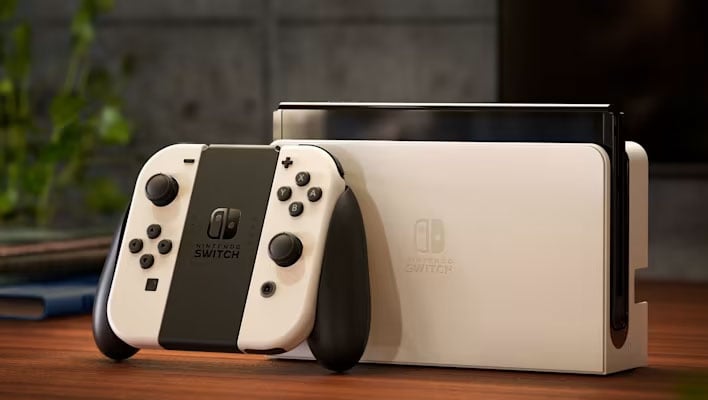Nintendo's family of Switch consoles is selling like gangbusters, currently ranking as the
third-best selling game console of all time, with a legitimate shot of overtaking the Nintendo DS (No. 2) and PlayStation 2 (No. 1) by the end of the year. Be that as it may, we're likely to see a Switch 2 in 2024. That may give you pause about picking up a current-gen Switch, but if you decide to do so, there's one thing that could work in your favor.
The latest Switch 2 rumor claims that Nintendo's next-generation console will be backwards compatible with Switch 1 games, including in both digital and physical form. Naturally this is not confirmed, as Nintendo is not sharing any details about its next-gen console plans. But if that turns out to be the case, players who invest (or have already invested) in games for their Switch hardware will be able to port their library over to the Switch 2 when and if they decide to upgrade.
That's according to a report by Universo Nintendo, which further claims that game developers will have the ability to enhance their existing games for the Switch 2 and its undoubted uptick in graphics horsepower. How that might manifest remains to be seen, but it could mean enhanced graphics, faster performance on titles that could benefit from higher framerates, and/or whatever new features might be on the horizon, like upscaling or ray tracing.
It's all speculation at this early stage, though at the very least, it seems like a foregone conclusion that we'll see a Switch 2 sometime this year. There are too many leaks and rumors to suggest otherwise, including a recent survey in which hundreds of game developers said they were actively
developing for the Switch 2, or "Nintendo Switch successor."
The Switch 2 offering
backwards compatibility is not the only fresh rumor making the rounds. According to
Reuters, the next Switch console is expected to be built around a
custom chip design from NVIDIA. The outlet mentioned this as an aside to NVIDIA investing $30 billion into a new unit for custom chips. Given the ongoing popularity of the Switch, which is based on NVIDIA's Tegra X1 SoC, it makes sense that NVIDIA would be keen to power Nintendo's follow-up act. In theory, that would make retaining backwards compatibility more feasible.

